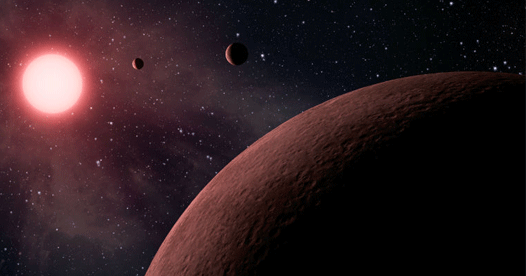
Scientists have for the first time detected atmosphere around an Earth-like planet beyond our solar system.
The planet, GJ 1132b, which orbits the dwarf star GJ 1132, is reported to be 39 light years away from Earth. The discovery is a significant step towards discovering life beyond Earth. The study was published in the Astrophysical Journal on 31 March 2017.
Key Points
• The planet is reported to have a radius of about 1.4 times that of the Earth and mass of about 1.6 times that of the Earth.
•The researchers initially called the planet a potential Venus twin considering its rocky world with a high surface temperature.
•The recent discovery shows that the planet also has a thick atmosphere. Though Venus has a thick atmosphere as well, the atmosphere of the two planets may be made up of different compositions.
•While Earth's atmosphere is mostly made up of nitrogen with a large oxygen component, Venus' is a thick veil of carbon dioxide.
•According to the researchers, the new planet’s atmosphere is likely to be rich in water vapour or methane.
Background
While this is not the first instant that the scientists have discovered an atmosphere around a planet, as they have previously detected atmospheres around large Jupiter-like gaseous bodies and on the even larger super-Earth, this is the first time that they have detected it around an exoplanet that is almost close to Earth’s size.
Scientists can use a planet’s atmosphere to identify potential traces of life on it or to determine if it is suitable for life, as we have on earth.
Current Affairs 7th April, 2017 Current Affairs One Liners 6th April, 2017 Current Affairs Round Up Bullet Points, March, 2017

Join The Discussion